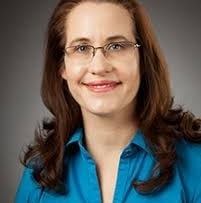Online Graduate Certificate - Hematology
Search For Schools
When you click on a sponsoring school or program advertised on our site, or fill out a form to request information from a sponsoring school, we may earn a commission. View our advertising disclosure for more details.
Hematology is a branch of science that involves the study of blood and the diseases related to it. Generally offered in tandem with clinical laboratory science programs, hematology courses give students an overview of blood-forming organs, immune therapies, immunology, and blood group systems. Medical laboratory and healthcare professionals and scientists who wish to gain an in-depth understanding of this branch of medicine can opt for hematology courses.
Online graduate certificates in hematology can generally be completed in the span of a year. While most courses are offered online, some programs require students to attend practical laboratory sessions. Along with insights into hematology, several clinical laboratory certificates also provide students with knowledge of laboratory operations, serology, hemostasis, and molecular diagnostics.
On completion of an online certificate in hematology, students can sit for the certified technologist exam and boost their careers. They can opt for roles such as medical lab technologists, blood bank technologists, histologic technicians, and cytotechnologists.
The following guide covers five online graduate certificates in hematology and related topics such as clinical laboratory science. It also profiles three exceptional faculty members in the field.
Featured Online Graduate Certificate – Hematology Programs
George Washington University offers an online post-baccalaureate certificate in hematology. The coursework teaches students to identify and study disease causes in the blood using the latest techniques and instruments.
To apply to the program, students must have completed a bachelor’s degree from an accredited university and have a GPA of at least 2.5. Additionally, they must submit official transcripts of every institute attended, an online application form, a letter of recommendation, a statement of purpose, and English language proficiency test scores (for non-U.S. students only).
The certificate program comprises 18 credits and prepares students to sit for the technologist in hematology exam, offered by national certifying agencies. Students in this online program will never be required to visit campus. Some of the courses included in the curriculum are hematology; immunology and serology; molecular diagnostics; lab management and operations; a hematology practicum; and a coagulation practicum. Practicum courses are completed at approved hospitals or diagnostic laboratories.
Overall, the program helps students develop scientific knowledge and vital skills. It assists them on the path to becoming certified technologists as well as having an impact on the healthcare system. They can take up roles such as blood bank technologists, certified medical technologists, medical lab technologists, and lab managers.
- Location: Washington, DC
- Accreditation: Middle States Association of Colleges and Schools; National Accrediting Agency for Clinical Laboratory Science (NAACLS)
- Expected Time to Completion: 12 months
- Estimated Tuition: $661 per credit
University of Massachusetts Lowell (Related Program)
The University of Massachusetts Lowell offers a 100 percent online graduate certificate program in clinical pathology. Clinical pathology is a dynamic field that combines various disciplines in biology and chemistry, such as human anatomy and physiology, microbiology, clinical chemistry, hematology, immunology, histocompatibility, and cellular pathology. Students learn how to monitor, detect, and prevent diseases.
The program is taught by experienced faculty members who bring extensive real-world experience to the online classroom. The program is ideal for nurses, medical laboratory professionals, and anyone working in pharmaceuticals interested in gaining in-depth knowledge of clinical pathology. Admission requirements to the program include a bachelor’s degree from a regionally accredited college or university and a GPA of 3.0 or better.
The program comprises four online courses, with two being required and two elective courses. Sample the courses included in the curriculum: clinical pathophysiology; health informatics; healthcare information systems; and molecular pathology. Students delve into the pathophysiologic causes of diseases and learn how to conduct research. Additionally, they also develop essential workplace skills such as management, communication, and the use of information systems.
The program can open up a wide variety of opportunities for students. A few of the roles they can pursue include cytogenetic technologists, cytotechnologists, histotechnologists and histologic technicians, and medical and clinical laboratory technicians.
- Location: Lowell, Massachusetts
- Accreditation: New England Commission of Higher Education (NECHE)
- Expected Time to Completion: A little over a year
- Estimated Tuition: $585 per credit
Rutgers, The State University of New Jersey (Related program)
The Rutgers School of Health Professions offers an online graduate certificate in clinical laboratory science. This program can be completed entirely online. The program is enriched by a wide variety of practical opportunities providing students with the necessary knowledge in clinical laboratory science.
The program is taught by experienced and knowledgeable faculty members with a wealth of clinical lab science expertise. The program is also taught by national and international guest lecturers. This certificate is an excellent option for students who are not ready for a master’s program but want to increase their knowledge in clinical lab science.
Admission requirements include a bachelor’s degree in clinical laboratory science or any other related science from a regionally accredited US institution, professional certification as a medical laboratory professional: MLS(ASCP)CM or its equivalent, official transcripts, TOEFL scores for international students, a minimum GPA of 3.0, and a current curriculum vitae.
Made up of 12 credits, the program is designed to make the students knowledgeable, providing them with advanced clinical laboratory science skills. Students pursuing this program, study courses such as advanced hematology; advanced hemostasis; molecular diagnostics; advanced clinical immunology; clinical laboratory data analysis; and infectious diseases.
At the end of the program, graduates can pursue several opportunities in various settings and take up various roles in the clinical laboratory field.
- Location: Newark, New Jersey
- Accreditation: Middle States Commission on Higher Education (MSCHE)
- Expected Time to Completion: 24 to 36 months
- Estimated Tuition: $1,054 per credit
Texas Tech University Health Sciences Center (Related Program)
Texas Tech University Health Sciences Center offers an online clinical laboratory science certificate program. The program combines online classes and instructional materials with a 6-day laboratory session that will be conducted on-site at the end of each of the first two semesters. The program also includes a clinical preceptorship which must be completed in an affiliated laboratory. Providing real-world experiences, the program is taught by experienced and knowledgeable faculty members.
Admission requirements include a completed online application form, a $75 online application fee, official transcripts, a bachelor’s degree from an accredited university, and a minimum cumulative GPA of 3.0.
Students pursuing this program study courses such as foundations of hemostasis; advanced hematology; foundations of immunohematology; advanced microbiology; principles of molecular diagnostics; and analysis of body fluids.
Students learn to analyze body tissues and fluids and know how to use complex instrumentation and sophisticated techniques. They develop critical thinking, and problem-solving skills and learn to perform routine and complex tests that help the physician diagnose and treat the patient. At the end of the program, graduates can pursue several opportunities in the clinical lab science field.
- Location: Lubbock, Texas
- Accreditation: Southern Association of Colleges and Schools Commission on Colleges (SACSCOC); National Accrediting Agency for Clinical Laboratory Sciences (NAACLS)
- Expected Time to Completion: 12 months
- Estimated Tuition: Texas resident ($215 per credit); non-resident of Texas ($635 per credit)
UC Berkeley’s continuing education arm, UC Berkeley Extension, offers an online course in hematology. This course is also a part of UC Berkeley’s other programs, such as the advanced biosciences program, the clinical laboratory scientist preparatory program, and the post-baccalaureate health professions program. Students can start the course whenever they wish, expecting a minimum of 30 days of workload per semester.
To apply for the course, students must have completed a year of college-level biology as a major subject. The course comprises three credits and must be completed within six months. The curriculum focuses on the basic principles of hematology, particularly in humans. Students can expect to gain an in-depth understanding of the origin of blood-forming cells, plasma, and blood-forming organs. Additionally, they explore various aspects of blood group systems, leukocytes, erythrocytes, platelets, and coagulation.
In order to pass the course, students must score at least 70 percent or more in the final exams. They receive their final grades two weeks after submitting the final exam. The course is ideal for medical laboratory professionals who wish to enhance their knowledge of hematology.
- Location: Berkeley, California
- Accreditation: Western Association of Schools and Colleges (WASC)
- Expected Time to Completion: Three months
- Estimated Tuition: $1,250 for the entire course
Professors to Know in Hematology and Clinical Lab Science

Texas Tech University Health Sciences Center
Dr. Tammy Carter is an associate professor and director of the clinical laboratory science program at Texas Tech University. She teaches courses in both clinical laboratory science, as well as molecular pathology programs. She’s also a member of the American Society for Clinical Pathologists.
Her research on the pathogenesis of chronic wound biofilms has been published in the prestigious journal, Laboratory Medicine. Notably, Dr. Carter won the Clinical Laboratory Sciences SGA Outstanding Faculty award two years in a row, in 2017 and 2018, and recently in 2021. She completed her PhD and BS from the Texas Tech University Health Sciences Center.

George Washington University
Clifford Cymrot is an assistant professor of biomedical laboratory sciences and the director of the medical laboratory sciences undergraduate program at George Washington University. He teaches various courses in the medical laboratory sciences program, on campus and online. Some of the classes he teaches include hematology, immunohematology lab, bacteriology lab, and molecular diagnostics lab.
He is a part of various professional organizations such as the American Society for Clinical Laboratory Science and the American Association of Bioanalysts. He completed his BS and MHA from the University of Cincinnati and an associate of applied science from Orange County Community College.

Rutgers University, School of Health Professions
Dr. Nadine Fydryszewski is a professor of medical laboratory science at the Rutgers University School of Health Professions. With a career spanning over 30 years, she has worked in various hospitals and private labs in microbiology, hematology, and immunohematology.
Dr. Fydryszewski’s research compares live versus web-based education in health professions, particularly clinical laboratory sciences and phlebotomy professions. She is a member of professional organizations, including the American Association for Clinical Chemistry and the American Society for Clinical Laboratory Science.
Professor Fydryszewski has won numerous awards ,such as the ASCLS Omicron Sigma Award, an Outstanding Educator of the Year Award, and an Outstanding Medical Technologist of the Year Award. She earned her PhD from the University of Medicine and Dentistry of New Jersey and her MS from Seton Hall University.

